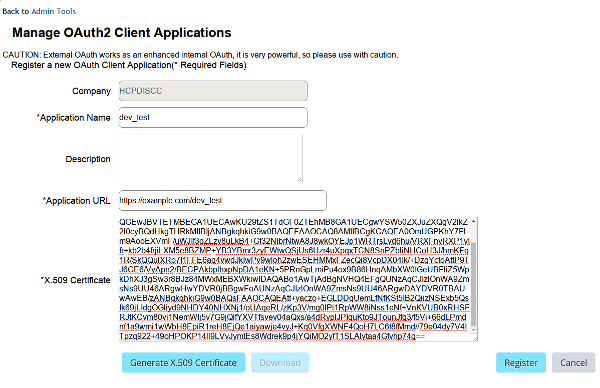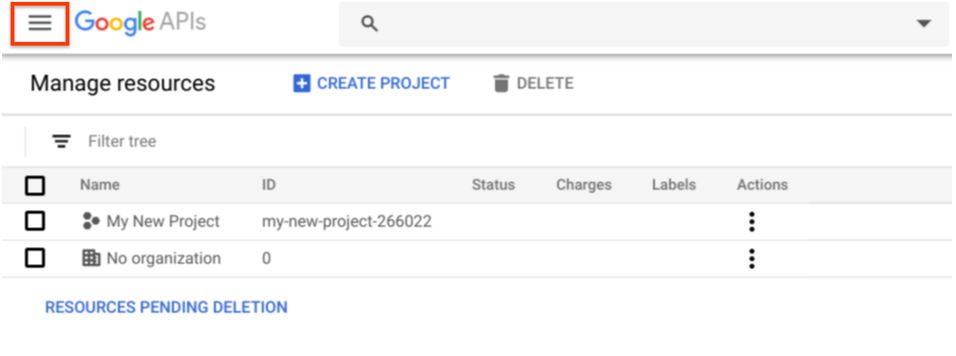Python Openssl Generate Key Pair
Several tools exist to generate SSH public/private key pairs. The following sections show how to generate an SSH key pair on UNIX, UNIX-like and Windows platforms.
Oct 02, 2019 The sample application shows an example how to generate a key pair into a context ( rsa or ecp ). Once you have the relevant context, you can use this context to write both the public key and the private key in PEM format, using mbedtlspkwritepubkeypem and mbedtlspkwritekeypem. OpenSSL Outlook PEM PFX/P12 POP3 PRNG REST REST Misc. Tar Archive Upload WebSocket XAdES XML XML Digital Signatures XMP Zip curl (CkPython) Generate RSA Public/Private Key Pair and Export to PEM. CkPython example code showing how to generate an RSA public/private key pair and export to PEM files. Chilkat Python Downloads. Python Module for. Mar 03, 2020 This page explains how to generate public/private key pairs using OpenSSL command-line tools. Device authentication. Cloud IoT Core uses public key (or asymmetric) authentication: The device uses a private key to sign a JSON Web Token (JWT). The token is passed to Cloud IoT Core as proof of the device's identity.
Mar 31, 2018 Generate public key and store into a file. It is a simple one liner command to generate a public key from a private key, so lets say our private key is named ‘user@myserver.key’ and we want to generate the public key and name it ‘authorizedkeys’. Below is the command to do this. Generate rsa key pair free download. PassEncryption is a software written in python designed to encrypt and decrypt files as well as generating passwords. You need to generate key-pair to every client that connect your server (through the SSH). This results to file with many keys which must be copied to every server that you manage. Generating a Secure Shell (SSH) Public/Private Key Pair Several tools exist to generate SSH public/private key pairs. The following sections show how to generate an SSH key pair on UNIX, UNIX-like and Windows platforms.
Python Openssl Generate Rsa Key Pair
Generating an SSH Key Pair on UNIX and UNIX-Like Platforms Using the ssh-keygen Utility

UNIX and UNIX-like platforms (including Solaris and Linux) include the ssh-keygen utility to generate SSH key pairs.

- Navigate to your home directory:
- Run the ssh-keygen utility, providing as
filenameyour choice of file name for the private key:The ssh-keygen utility prompts you for a passphrase for the private key.
- Enter a passphrase for the private key, or press Enter to create a private key without a passphrase:
Note:
While a passphrase is not required, you should specify one as a security measure to protect the private key from unauthorized use. /generate-ssh-key-windows-github.html. When you specify a passphrase, a user must enter the passphrase every time the private key is used.
The ssh-keygen utility prompts you to enter the passphrase again.
- Enter the passphrase again, or press Enter again to continue creating a private key without a passphrase:
- The ssh-keygen utility displays a message indicating that the private key has been saved as
filenameand the public key has been saved asfilename.pub. It also displays information about the key fingerprint and randomart image.
Generating an SSH Key Pair on Windows Using the PuTTYgen Program
The PuTTYgen program is part of PuTTY, an open source networking client for the Windows platform. /windows-7-ultimate-32-bit-key-generator-free-download.html.
Openssl Generate Certificate
Openssl Generate Rsa Private Key
- Download and install PuTTY or PuTTYgen.
To download PuTTY or PuTTYgen, go to http://www.putty.org/ and click the You can download PuTTY here link.
- Run the PuTTYgen program.
- Set the Type of key to generate option to SSH-2 RSA.
- In the Number of bits in a generated key box, enter 2048.
- Click Generate to generate a public/private key pair.
As the key is being generated, move the mouse around the blank area as directed.
- (Optional) Enter a passphrase for the private key in the Key passphrase box and reenter it in the Confirm passphrase box.
Note:
While a passphrase is not required, you should specify one as a security measure to protect the private key from unauthorized use. When you specify a passphrase, a user must enter the passphrase every time the private key is used.
- Click Save private key to save the private key to a file. To adhere to file-naming conventions, you should give the private key file an extension of
.ppk(PuTTY private key).Note:
The.ppkfile extension indicates that the private key is in PuTTY's proprietary format. You must use a key of this format when using PuTTY as your SSH client. It cannot be used with other SSH client tools. Refer to the PuTTY documentation to convert a private key in this format to a different format. - Select all of the characters in the Public key for pasting into OpenSSH authorized_keys file box.
Make sure you select all the characters, not just the ones you can see in the narrow window. If a scroll bar is next to the characters, you aren't seeing all the characters.
- Right-click somewhere in the selected text and select Copy from the menu.
- Open a text editor and paste the characters, just as you copied them. Start at the first character in the text editor, and do not insert any line breaks.
- Save the text file in the same folder where you saved the private key, using the
.pubextension to indicate that the file contains a public key. - If you or others are going to use an SSH client that requires the OpenSSH format for private keys (such as the
sshutility on Linux), export the private key:- On the Conversions menu, choose Export OpenSSH key.
- Save the private key in OpenSSH format in the same folder where you saved the private key in
.ppkformat, using an extension such as.opensshto indicate the file's content.